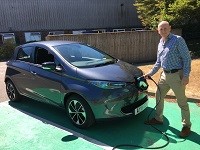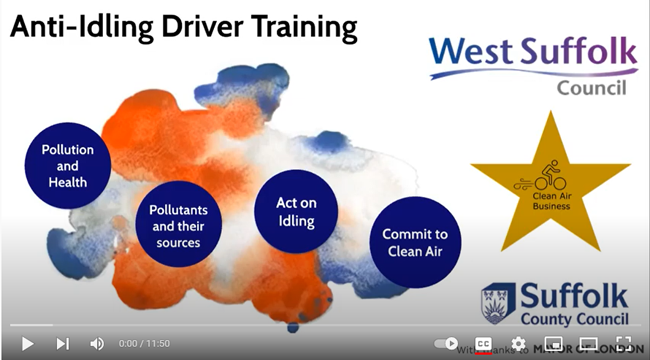Air quality
If you are suffering from poor air quality as a result of dust, odour or smoke from a neighbour, we may be able to help you. We can intervene if the problem is considered to be a statutory nuisance. If this is the case the problem would need to be persistent and preventing you from enjoying your home or garden on a regular basis.
Report a problem with air quality (smoke, dust or odours) - complete West Suffolk Council enquiry form or, phone Customer Services on 01284 757053
Councils are required to carry out air quality testing and identify any areas that are particularly high in pollutants. In West Suffolk this is primarily Nitrogen Dioxide (NO2) which comes from vehicle emissions. Any identified areas are known as 'air quality management areas'. These are monitored and regularly assessed with an action plan put in place to try and minimise pollution. View the latest air quality assessment report for West Suffolk:
Smoke control areas
There are no smoke control areas designated within West Suffolk.
Anti-idling
Did you know that a minute of idling produces enough toxic fumes to fill 60 people's lungs? Areas such as school and hospitals are especially sensitive to poor air quality. One really easy action is to turn off your engine as soon as you reach your destination.
To find out more useful information and to help spread the message, download our posters and leaflet:
- Idling cars are an invisible threat - information leaflet
- Idling cars are an invisible threat - poster
- I switch off when parked - car sticker
- Switch off when parked - banner
We are looking for schools to work with to prevent idling outside the school gates and we will work closely with a small number of schools using our continuous air quality monitor to reveal emissions spikes caused by the daily school run. If you are a teacher, governor, parent or child who wants to reduce idling outside your school, please get in touch via environment@westsuffolk.gov.uk
Other ways to help
- Reduce your personal car usage or switch to an electric vehicle – see below
- Make sure your car is serviced regularly, carry only essential loads and drive in a steady manner
- Consider purchasing an ultra low emissions vehicle - see our Electric vehicles page
- If you purchase a traditional fuelled car, consider efficient petrol engines over diesel
- Encourage your employer, school or college to set up a green travel plan
- Remember to not idle when parked, especially when close to schools, hospitals and GPs
- Car share to reduce emissions and save money
- Burn less wood fuel when heating your home
- Defra have produced leaflets providing a practical guide on open fires and wood burning stoves, how to get the most from your stove or open fire and reducing air pollution from outdoor burning.


